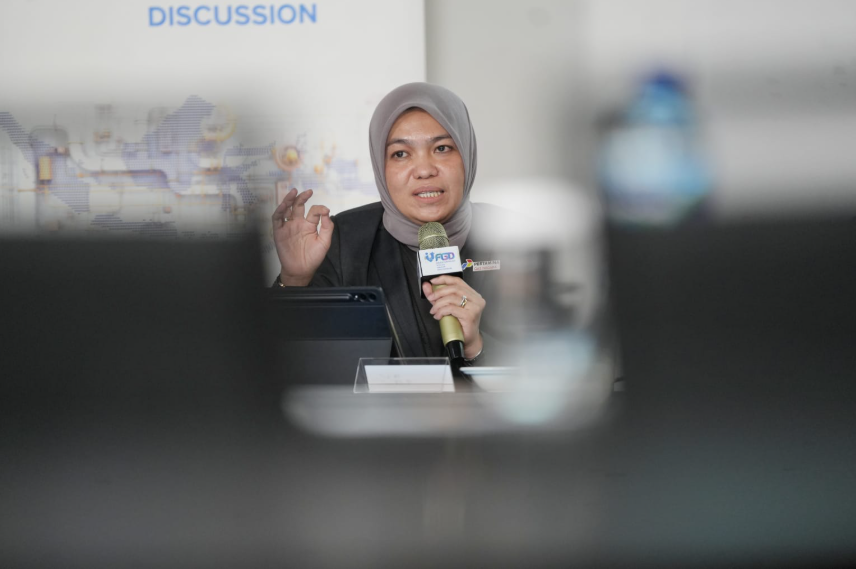Kembali Ke Beranda
29 Okt 2024
PGN Ready to Play Its Role in Collaborative Efforts to Build National Gas Networks to Reduce Energy Subsidies
Jakarta – PT PGN Tbk, as the Gas Subholding of Pertamina, remains committed to expanding household gas networks (jargas) to deliver benefits for both the public and the nation. PGN acknowledges that the business chain for developing gas networks is extensive and requires synergistic collaboration to maximize their benefits for the community. The reduction of energy subsidies was one of the highlights during the FGD Investortrust event titled Collaborative Efforts to Build Gas Networks on Tuesday, October 29, 2024.
PGN's development of gas networks aligns with the government’s Asta Cita program, particularly in efforts toward energy self-sufficiency, ensuring project sustainability. Currently, PGN manages 820,000 Household Connections (SR), equivalent to 84,000 metric tons of LPG. However, the capacity of the infrastructure already built by PGN exceeds the number of households or commercial customers connected to the network. There remains significant potential for optimizing existing infrastructure to increase the number of customers and utilize the gas supply allocated by SKK Migas for gas networks and BBG (compressed natural gas). This will increase natural gas absorption, which will help reduce energy subsidies for subsidized LPG consumption.
Laode Sulaeman, Director of Infrastructure Planning and Development for Oil and Gas at the Directorate of Oil and Gas, Ministry of Energy and Mineral Resources (KESDM), emphasized that one strategy for gas network development is an integrated model between industries and households, or through industrial clusters, along with beyond-pipeline mechanisms implemented by business entities.
“We (BPH Migas) support pricing for households and small customers to promote the utilization of domestic gas. However, infrastructure remains key, requiring collaboration among all parties to align toward a shared goal,” stated Idham Baridwan, Coordinator of Gas Pipeline Tariffs and Pricing Regulation at BPH Migas.
Echoing the regulators’ statements, Rosa Permata Sari, PGN's Director of Strategy and Business Development, said, “Collaboration and contribution from all parties are essential, along with orchestrated planning based on community needs, to achieve energy self-sufficiency. PGN is ready to fulfill its role in the business chain and the collaborative distribution of gas networks.”
Rosa highlighted that investment in gas network development is substantial. One of the strategies employed is the Public-Private Partnership (PPP) concept, where business entities receive assignments. Simultaneously, integration or clustering efforts are implemented to enhance cost efficiency. Government incentives with a solid legal foundation within the PPP framework provide opportunities for both state-owned enterprises and private companies to contribute to the gas network program.
Currently, PGN continues to maximize the use of natural gas for household gas network development. Transmission pipelines are being extended, followed by distribution pipelines to expand gas network penetration into homes. PGN is also employing a beyond-pipeline approach, such as the CNG Clustering project in Sleman, Yogyakarta. By 2025, PGN targets the construction of 200,000 gas connections, bringing the total additional gas networks to 400,000 SR between 2021 and 2025.
Rosa also reaffirmed PGN's readiness to develop gas network infrastructure in partnership with other entities to achieve greater integration. “Moving forward, the focus will be on integration alongside the development of industrial and commercial plans. To support this, we require facilitation in areas such as licensing, allocation certainty, and incorporating gas network infrastructure as part of basic housing or residential infrastructure,” she said.
Kembali Ke Beranda











